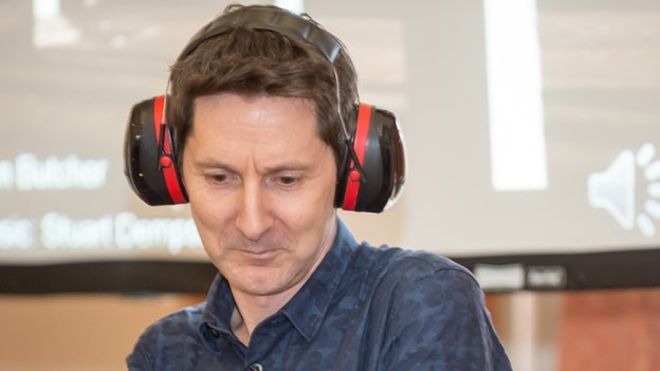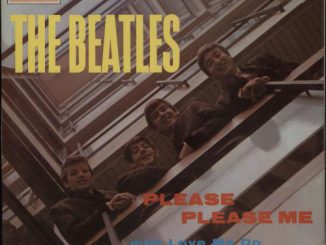……now we at eil.com are not recommending you copy Professor Trevor Cox’s antics (it may cause lasting damage!) but it does make for some interesting reading that’s for sure….

In preparation for a BBC Radio 4 documentary, Giving up music for Lent, to be broadcast on Monday, I have been trying to avoid all music.
This fast is not being done for religious reasons, instead it is about getting an insight into how the ever-present music in modern society affects us all. These are some of the things I’ve discovered so far.

1. My inner jukebox went into overdrive
Virtually all of us hear music in our heads. At the start of the experiment I was flooded with musical imagery. Repetitive tunes that get stuck in the brain are called “earworms” and currently mine is a bizarre mix including the theme tune from the movie Airplane!, Mozart’s Eine Kleine Nachtmusik and snippets of saxophone music I play.
This bombardment of earworms lasted for the first few days of the fast, and then it gradually settled down to something more normal.
Victoria Williamson, a music psychologist from Sheffield University, told me some people who go on silent retreats have a similar reaction. When I removed music from my life, my brain compensated for this by creating excessive musical imagery.
2. I desperately wanted to hum and sing

During the early days, I had to work hard not to sing along to my inner music, especially with so many tunes swirling around my head. Cycling around Salford, pottering around the house, typing in my office… throughout the day I was desperate to externalise the sound.
When I let a few notes out by accident, I also noticed how much more satisfying it was than just imagining the tune inside my head. Boris Kleber and colleagues have researched the difference between overt and imagined singing. They got classical singers to perform the first line of the bel canto aria Caro Mio Ben by Tommaso Giordani in a brain scanner.
They found some differences in the areas of the brain that were activated depending on whether the subjects imagined or actually sung the tune. My suspicion is that I found the few vocalised notes more satisfying because the musical stimulus was more potent as it involved more of the body.
3. There are people who don’t like music
After a week without music I started to get very tired and weary. One cause could have been that I was missing music’s ability to stimulate the reward centres of the brain. There are people, however, who do not seem to get the same hit when listening to music, even though they can hear and perceive perfectly well.
A study from the University of Barcelona published last year found that there are people who do not seem to enjoy music. The researchers named the condition musical anhedonia. In one part of the study the researchers played subjects pieces of music, in another, they got them playing a game that had monetary rewards.
They found that people with musical anhedonia gained pleasure from the game but not from the music, indicating differences in how the reward centres of their brains are accessed compared to most people.

4. The only way to completely avoid music is to become a hermit
It’s impossible to completely avoid music and try and go about a normal life. Out and about during the fast I have heard snippets of tunes leaking out from headphones as people pass me in the street, music spilling from shop entrances, and the distant sounds of my sons starting to practise their instruments.
While ear plugs and ear defenders can stop some sound, they are not completely effective if the music is loud. To solve this problem I have a track on my MP3 player of rumbling noise. This masking sound played from in-ear headphones is very effective.
But the only way to guarantee not hearing even the tiniest snippet of music would be to play this noise all day, something that alarmingly mimics sensory deprivation techniques that the CIA have been accused of doing. So if someone wants to do an experiment that involves no music being heard whatsoever, then they would have to find a remote hermitage and completely switch off all technology.
5. Music is so ubiquitous it’s easy to overlook
I have walked into cafes and into the reception areas of offices, and it has sometimes taken a good few minutes for me to notice that there is music playing. We have no “earlids”, and there is no auditory equivalent of averting our gaze.
Our hearing is constantly picking up sounds and our brain then has to work out which sounds are important and must be paid attention to, and which ones can be safely ignored.
Something noisy and abrupt, like the squealing of car brakes, catches our attention immediately so that we can fight or take flight.
When we hear something less threatening, like subtle background music, our brain decides whether we should consciously notice it. Often music is so quiet in public places, that if I was concentrating on something else, like what sandwich to buy in a cafe, my brain would not register the music.
Once I noticed, I had to leave in a hurry.
Giving up music for Lent will be broadcast at 1600 GMT on 16 March on BBC Radio 4.




Be the first to comment